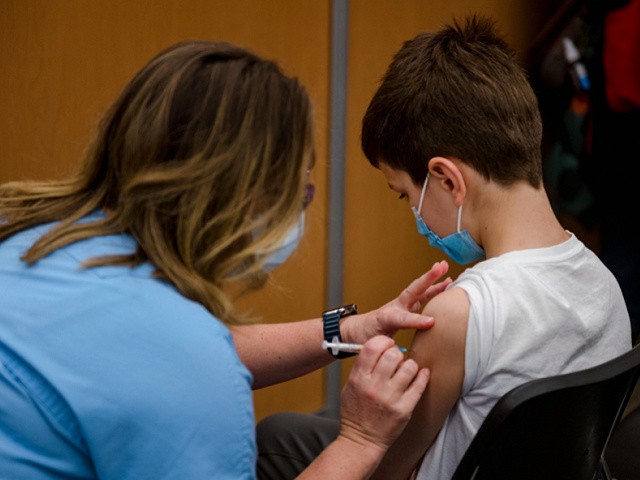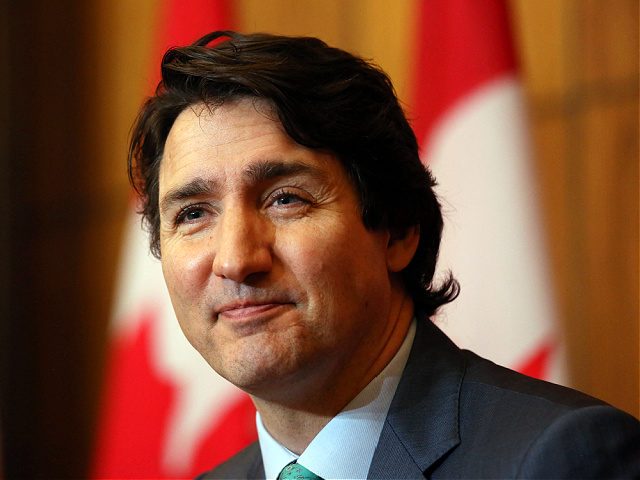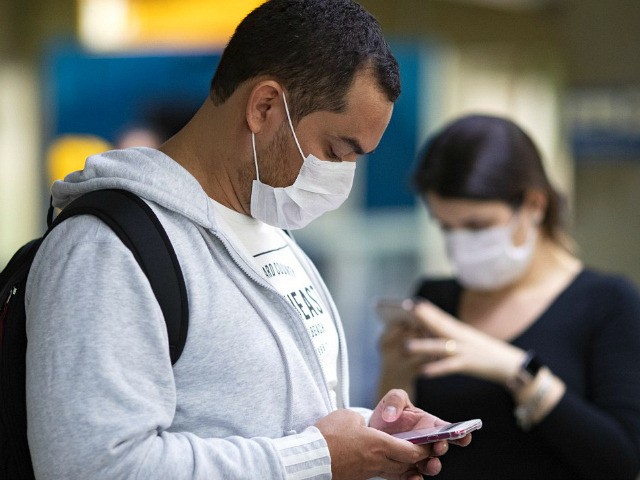Canadian Auditor General Karen Hogan presented Canada’s Parliament on Monday with a blistering report on ArriveCAN, the application created in April 2020 to assist travelers and determine their health status during the Wuhan coronavirus pandemic.
Hogan’s report portrayed ArriveCAN as a disaster at every level, from software coding to financial records. Hogan said the Canadian Border Services Agency (CBSA) did such a poor job of documenting the project that it was impossible for her office to “determine the precise cost of the ArriveCAN application.”
“This is probably the first example that I’ve seen such a glaring disregard for some of the most basic and fundamental policies and rules,” she said in testimony to the House Public Accounts Committee on Monday.
“We didn’t find records to accurately show how much was spent on what, who did the work, or how and why contracting decisions were made – and that paper trail should have existed,” she said.
Hogan noted that some 18 percent of the invoices submitted by outside contractors on the project lacked supporting documentation, and the project continued relying on outside contractors long after it should have transitioned to less expensive internal personnel. Her office believes up to 20 percent of the funding may have been spent on expenses unrelated to developing and maintaining ArriveCAN.
The auditor general could only make an educated guess on a final price tag of roughly $44.3 million in U.S. dollars for the pandemic application. She said it was not money well spent.
“As a result of the many gaps and weaknesses we found in the project’s design, oversight, and accountability, it did not deliver the best value for taxpayer dollars spent,” Hogan’s report to Parliament said.

A child, 11, receives the Pfizer-BioNTech Covid-19 vaccine for children in Montreal, Quebec, on November 24, 2021. (ANDREJ IVANOV/AFP via Getty Images)
ArriveCAN is still up and running and can be used by travelers to make customs and immigration declarations before flying into most of Canada’s big airports. When the app was first created in 2020, using it was mandatory. After that requirement was lifted in October 2023, very few travelers continued using it.
Hogan’s report acknowledged that the Canadian government, like most others around the world, was panicked over the Wuhan coronavirus in 2020 and fumbled for solutions to control the pandemic. She said this state of alarm was no excuse for failing to “follow good management practices in the contracting, development, and implementation of the ArriveCAN application.”
Hogan told CBC Radio on Monday that she found emails from vendors to “individuals in the branch that was responsible for developing and implementing the ArriveCAN application” inviting them to mysterious “dinners and other activities.”
“We have no documentation to know whether folks attended those events or they didn’t,” she said.
“The agency has a code of conduct, and that code of conduct requires that a public servant inform their supervisor if they receive an invitation to a private function from a vendor. That disclosure is needed so that the supervisor can then decide if measures need to be put into place because this increases the risk that there is real or perceived conflict of interest or bias in making procurement decisions,” she explained.
“If individuals informed their supervisors, none of it was documented. And we were unable to show whether or not appropriate measures have been put in place to mitigate the risk,” she said.
Hogan told CBC Radio there was some consolation to be found in that ArriveCAN “improved the quality of the information that the government was collecting from travelers entering into the country” at the height of the pandemic.
“So there was definitely some value and it improved the service to Canadians and the ability to track border measures. But the need to be quick and effective doesn’t eliminate the need to show accountability and transparency to Canadians,” she said.
The National Post cited passages in Hogan’s report that said there was “no competitive bidding process for the app,” some of the contracts written for outside services were confusingly structured, and while Hogan generously credited ArriveCAN with providing some useful data during the pandemic, the app was a technological disaster by any objective standard:
From launch until the health requirements were lifted in October 2022, the CBSA released 177 versions of ArriveCan. At this time there were no documented approvals ensuring that requirements were met before the release of new versions of the app.
For 12 of the 25 major releases, there was no evidence that the CBSA completed user testing. Only three of the major releases were documented with complete user testing.
In one update in June 2022 around 10,000 travelers were wrongfully instructed to quarantine after arriving in Canada because of a malfunction with ArriveCAN.

Canadian Prime Minister Justin Trudeau speaks during a press conference on the Covid-19 situation, January 5, 2022, in Ottawa, Canada. (DAVE CHAN/AFP via Getty Images)
The National Post noted that “certain employees and contractors” involved in the ArriveCAN debacle have been referred to the Royal Canadian Mounted Police (RCMP) for investigation.
Intergovernmental Affairs Minister Dominic LeBlanc told reporters on Monday that the picture of incompetence and wasted public money painted by Hogan’s report was “unacceptable.”
“Under no circumstance would we pretend that because the whole world was facing this global pandemic, that the contracting rules that need to be robust to handle taxpayers money, can somehow be disregarded,” said LeBlanc.
“We’re glad that the auditor general has drawn attention to this particular, lack of rigor in the contracting process. The good news is the border services agency has already acted in putting into effect a number of the recommendations,” he said.
Conservative Party leader Pierre Poilievre slammed the administration of Prime Minister Justin Trudeau for the waste and ineptitude revealed by Hogan’s report. He was especially critical of Trudeau for relying so heavily on expensive outside contractors.
“Public servants do the work more accountably, and they do it more affordably. We’re going to save money by reversing Trudeau’s doubling of outsourcing,” he told reporters.
On Tuesday, Poilievre wrote to the RCMP asking them to expand their investigation of the “corruption, mismanagement, and misconduct” of the ArriveCAN project.
Poilievre obliquely threatened Trudeau not to interfere with the investigation.
“It doesn’t take politicians, even leaders of the opposition, to tell the RCMP to do their job. They do their job and they do it well. We will make sure all rules are followed and that there are consequences for people who broke the laws or broke the rules,” he vowed.

COMMENTS
Please let us know if you're having issues with commenting.